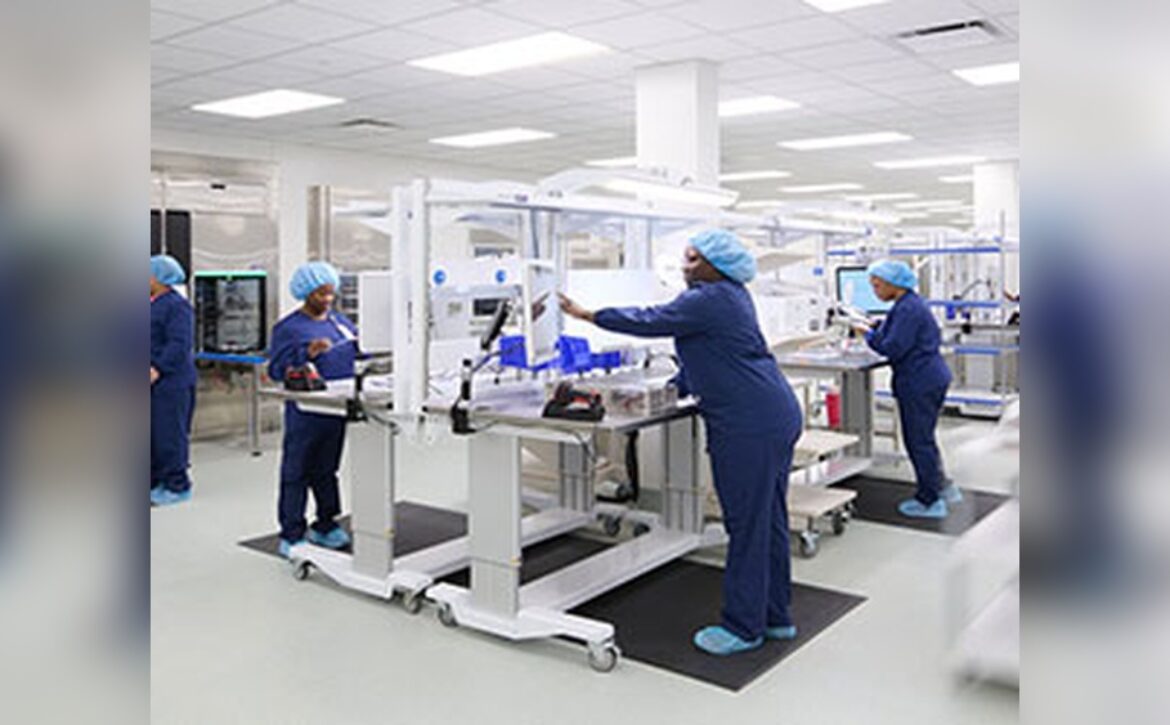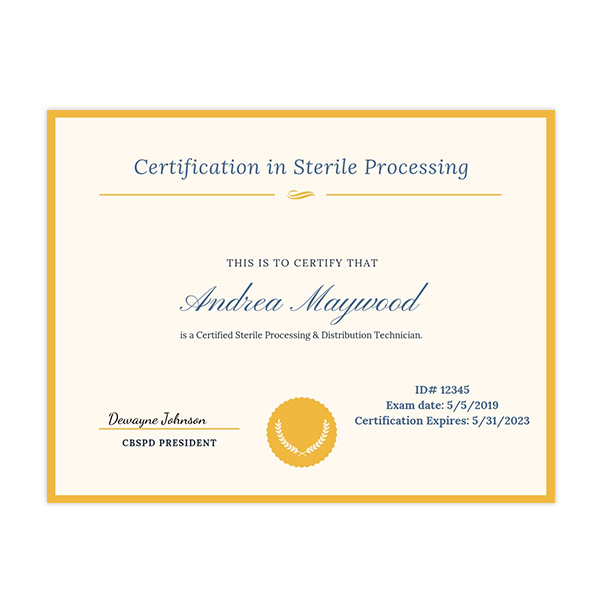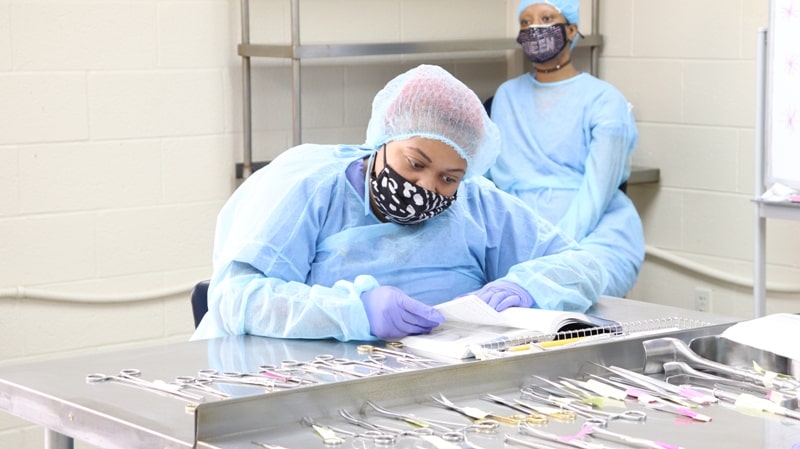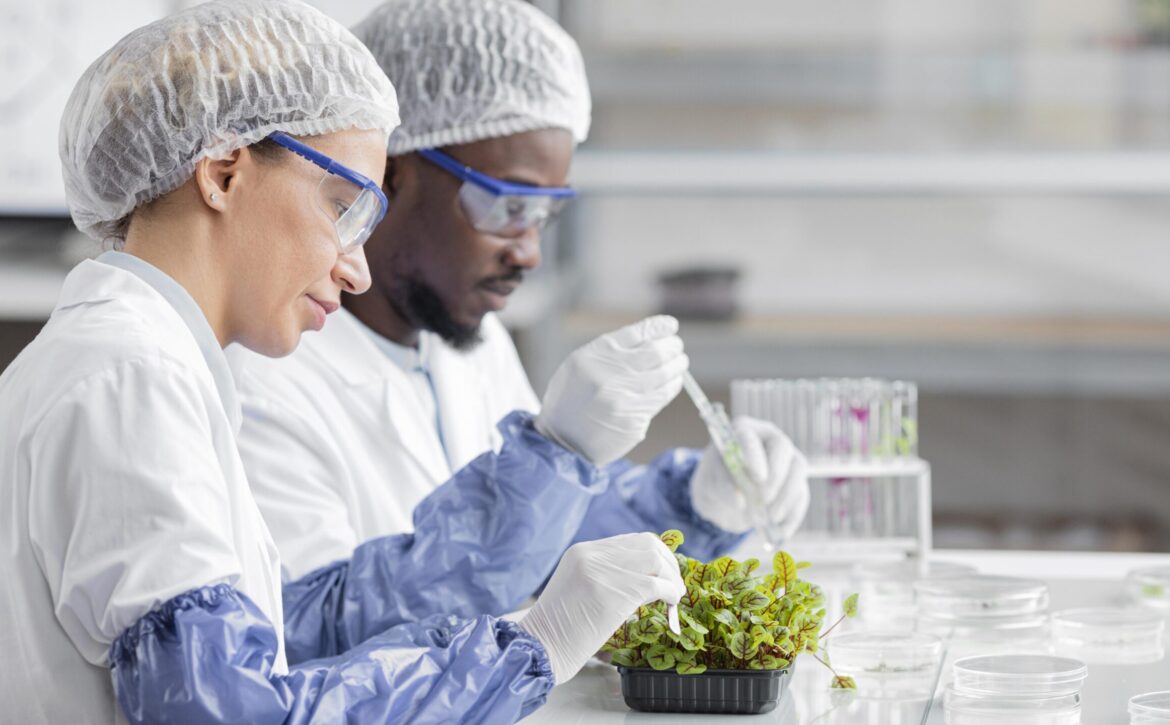
How to Become a Sterile Processing Technician Course: Expert Guide
Ever wondered about the crucial role that keeps hospitals running smoothly behind the scenes? As a Sterile Processing Technician, you become an essential part of the healthcare team, ensuring that surgical instruments and medical equipment are safe and ready for use.
If you’re passionate about making a difference and want a career that guarantees job stability, this might just be your calling. But how do you get started? In this guide, you’ll discover everything you need to know about enrolling in a Sterile Processing Technician course.
Whether you’re fresh out of school or looking to switch careers, this step-by-step roadmap will help you navigate the path with ease. Imagine the satisfaction of knowing your work directly impacts patient safety and care. Ready to unlock a rewarding career that combines technical skills with a meaningful purpose? Let’s dive in and explore how you can become a certified Sterile Processing Technician.

Role Of Sterile Processing Technician
Sterile Processing Technicians play a vital role in healthcare, ensuring surgical instruments are clean and safe. To become one, enrolling in a specialized course provides essential skills like sterilization methods, equipment handling, and infection control. This training is crucial for maintaining high standards in medical environments.
The role of a Sterile Processing Technician is crucial in maintaining the safety and efficiency of healthcare facilities. These dedicated professionals ensure that all medical equipment and instruments are properly cleaned, sterilized, and ready for use. Whether you’re considering this career path or are simply curious about the behind-the-scenes heroes of healthcare, understanding their role can provide valuable insights into the healthcare system.
Daily Responsibilities
As a Sterile Processing Technician, your day kicks off with the vital task of collecting used surgical instruments. You meticulously sort them, removing any debris, before moving on to the cleaning process. This involves using specialized equipment and solutions to ensure that every tool is spotless and safe for future procedures. Once cleaned, instruments are carefully inspected for damage. You identify any issues and report them, ensuring that only the best-quality tools are sent back to the operating rooms. Finally, you operate autoclaves or other sterilization machines, following strict protocols to ensure each instrument meets healthcare standards.
Importance In Healthcare
Sterile Processing Technicians are the unsung heroes of infection control. Without their diligence, the risk of infection would skyrocket, putting patients’ health at risk. Your work directly impacts patient safety, making it one of the most rewarding aspects of the job. Consider this: surgeons rely on your expertise to perform life-saving procedures. Your attention to detail and commitment to excellence ensure that they have the tools needed to succeed. Have you ever thought about how your role could be the difference between a successful operation and a potential hazard? This career not only offers stability but also a sense of purpose. Knowing that your daily efforts help save lives can be incredibly fulfilling. Are you ready to be a vital part of the healthcare team, ensuring the safety and success of countless medical procedures?
Educational Requirements
Becoming a sterile processing technician requires specific education. Understanding the educational path is crucial. This ensures you meet the industry standards. Let’s explore the necessary educational requirements. We’ll cover high school diplomas and relevant courses needed.
High School Diploma
Start with a high school diploma. It’s the basic educational requirement. Most training programs need it. Focus on science subjects. Biology and chemistry are helpful. They provide a solid foundation. Math skills are also important. Accuracy and attention to detail are crucial. These subjects support your future training.
Relevant Courses
Enroll in relevant courses after high school. Many community colleges offer them. Look for programs in sterile processing. Some courses cover infection control. Others focus on equipment sterilization. Medical terminology is often included. Understanding these terms is vital. It helps in your daily tasks. Look for courses offering hands-on training. Practical experience is highly valued. It prepares you for real-world scenarios.
Certification Options
Choosing the right certification is a pivotal step in your journey to become a Sterile Processing Technician. Certification not only validates your skills but also boosts your career prospects. Whether you’re just starting out or looking to advance, understanding the certification options available can guide your decisions and open doors to new opportunities.
Certified Registered Central Service Technician (crcst)
The CRCST certification is widely recognized in the healthcare industry. It demonstrates your competence in sterile processing and central service operations.
To obtain this certification, you need to pass an exam that tests your knowledge and skills. You’ll cover topics like infection control, sterilization procedures, and inventory management.
Many aspiring technicians find the CRCST certification appealing because it sets a solid foundation for their careers. It often leads to increased job opportunities and higher salaries.
Other Certification Programs
Beyond CRCST, there are other certification programs worth considering. These include the Certified Sterile Processing and Distribution Technician (CSPDT) and the Certified Instrument Specialist (CIS).
Each program has its unique focus and requirements. CSPDT, for example, emphasizes distribution and inventory management, while CIS dives deeper into surgical instruments.
Think about your career goals and interests when choosing a certification. Would you prefer working with surgical instruments or managing inventory? Your choice can impact your daily responsibilities and future career path.
Certification isn’t just about passing an exam; it’s about gaining confidence in your skills. Picture yourself in a hospital setting, knowing you’re equipped with the knowledge to make a difference.
Have you considered how certification could change your career trajectory? It’s more than a credential; it’s a testament to your dedication and expertise.
Course Curriculum
Embarking on the journey to become a Sterile Processing Technician involves a structured course curriculum. The curriculum provides essential knowledge and practical skills needed in the healthcare industry. Understanding the course components prepares students for the challenges and responsibilities ahead. Below, we break down the curriculum into two main parts: Core Subjects and Hands-On Training.
Core Subjects
The core subjects form the foundation of sterile processing education. Students learn about infection control and sterilization procedures. Classes cover medical terminology to enhance communication in healthcare settings. Anatomy and physiology are taught to understand the human body’s structure. Material management and inventory control are also included. This knowledge aids in handling medical equipment efficiently.
Regulatory standards and compliance are crucial subjects in the curriculum. Understanding these ensures adherence to healthcare laws and guidelines. Students also study safety protocols to maintain a safe working environment. Each subject equips students with the necessary tools for their future roles.
Hands-on Training
Hands-on training is essential for practical skill development. Students practice cleaning and sterilizing medical instruments. They learn to operate sterilization equipment under professional supervision. Simulated labs provide a real-world experience. These labs mimic actual hospital settings and procedures.
Working with experienced instructors enhances learning. Feedback from professionals helps refine techniques and build confidence. Hands-on training helps students apply theoretical knowledge practically. It prepares them for the fast-paced environment of healthcare facilities. This practical approach ensures readiness for real-world challenges.
Choosing The Right Program
Selecting the right course to become a sterile processing technician is crucial. Consider programs that offer hands-on training and accredited certification. Researching course details can help ensure the best educational experience and job preparation.
Choosing the right program to become a Sterile Processing Technician is crucial for your career path. With various options available, it’s essential to weigh the benefits of each to find the one that aligns with your goals and lifestyle. Let’s explore what you need to consider to make an informed choice.
Accredited Institutions
Accreditation ensures that the program meets specific standards of quality. Attending an accredited institution can make a significant difference in your learning experience and employability. Employers often prefer candidates from accredited programs because they have proven their credibility and quality. Check if the program is accredited by organizations like the International Association of Healthcare Central Service Materiel Management (IAHCSMM) or the Certification Board for Sterile Processing and Distribution (CBSPD). These accreditations validate that the curriculum meets industry standards. Additionally, they often provide resources for ongoing education and professional development.
Online Vs. In-person Training
The choice between online and in-person training depends on your learning style and schedule. Online programs offer flexibility, allowing you to learn at your own pace and fit your studies around other commitments. This option is ideal if you are balancing work, family, or other responsibilities. In-person training, on the other hand, provides a hands-on learning experience. You get immediate feedback and the opportunity to interact directly with instructors and peers. If you thrive in a collaborative environment and prefer structured schedules, in-person classes might be the way to go. Consider what’s most important for you: the convenience of online learning or the interactive nature of traditional classrooms? Reflect on your personal and professional obligations. This will help you decide which format will support your success as a Sterile Processing Technician.
Career Opportunities
Embarking on a career as a Sterile Processing Technician opens various doors. This profession is vital in healthcare, ensuring equipment safety and cleanliness. Completing a course equips you with skills in sterilization, infection control, and equipment management. The demand for qualified technicians is growing, creating exciting career opportunities across different healthcare settings.
Hospitals And Clinics
Hospitals and clinics are the main employers for sterile processing technicians. These settings need skilled individuals to keep surgical tools sterile. Opportunities abound in departments like surgery, emergency, and outpatient clinics. Technicians play a crucial role in patient safety, making them indispensable. Working in these environments offers exposure to diverse medical procedures. This experience enriches your understanding of healthcare operations.
Advancement Prospects
Career advancement is possible with experience and further education. Starting as a technician, you can move into supervisory or managerial roles. Specialized certifications enhance your skills and open new paths. Continuing education helps in keeping up with industry changes. Leadership roles involve overseeing teams and managing department operations. These positions offer greater responsibility and higher salaries. Pursuing advanced roles can also involve teaching or training new technicians. This is rewarding as you contribute to the growth of the profession.
Skills Development
Learn essential skills to become a Sterile Processing Technician through a comprehensive course. Gain knowledge in sterilization procedures, equipment handling, and infection control. Prepare for a rewarding career in healthcare by mastering these crucial techniques.
Embarking on the path to becoming a Sterile Processing Technician (SPT) requires a solid foundation in skills development. The role is crucial in maintaining the safety and efficiency of healthcare environments. This is where honing specific skills becomes not just beneficial but essential. Let’s delve into two key areas: technical proficiency and attention to detail, both of which are vital for your success as an SPT.
Technical Proficiency
To thrive as a Sterile Processing Technician, you need to master technical skills. These include understanding sterilization techniques and operating complex machinery. You might find yourself working with autoclaves, ultrasonic washers, and other advanced equipment. Hands-on practice is key. Engage with training modules that offer simulations or real-world scenarios. The more you familiarize yourself with these tools, the more confident you’ll become. Don’t hesitate to ask questions or seek clarification during your courses. This proactive approach will deepen your understanding and prepare you for the unexpected challenges you might face on the job.
Attention To Detail
Attention to detail is non-negotiable in sterile processing. A single oversight can compromise patient safety, which underscores the importance of vigilance in your work. Develop a habit of double-checking your tasks. Whether it’s inspecting instruments for cleanliness or ensuring the correct assembly of surgical trays, precision is your ally. Reflect on times when a small mistake led to bigger issues in your daily life. Use these experiences to emphasize the importance of thoroughness in every task you undertake. Consider setting personal benchmarks for accuracy. Challenge yourself to reduce errors over time. How can you improve your focus and attention in everyday tasks? Engaging in activities that enhance concentration, like puzzles or mindfulness exercises, can also sharpen your attention to detail. These practices not only support your technical abilities but also enhance your overall effectiveness as a Sterile Processing Technician.
Exam Preparation Tips
Studying for a Sterile Processing Technician course requires focus and organization. Create a study schedule and prioritize key topics. Practice with sample questions to strengthen understanding and boost confidence.
Preparing for the sterile processing technician exam can feel overwhelming, but with the right approach, you can tackle it confidently. Whether you’re juggling work, family, or other commitments, strategic preparation is key. Let’s dive into some practical exam preparation tips to help you succeed.
Study Strategies
Start by organizing your study schedule. Break down the exam topics into manageable sections and assign each a specific day or week. Use a mix of study methods—reading, note-taking, and teaching the material to someone else. Teaching can reveal gaps in your understanding and reinforce your knowledge. Consider forming or joining a study group. Discussing topics with peers can provide new insights and help clarify complex concepts. Take frequent breaks to maintain focus and avoid burnout. A short walk or a snack can refresh your mind and boost productivity.
Practice Exams
Practice exams are your best friend. They mimic the actual exam experience and help you gauge your readiness. Set aside time to complete practice tests under timed conditions. This will help you manage your time effectively during the actual exam. After each practice exam, review your answers thoroughly. Identify your weak areas and focus on improving those before your next attempt. Don’t just memorize answers. Understand the rationale behind each question. This will prepare you for variations in question wording on the actual exam. Remember, consistent practice builds confidence. How often do you engage in practice tests? Consider increasing the frequency as the exam date approaches. By following these tips, you can enhance your preparation, boost your confidence, and increase your chances of success.
Networking And Professional Growth
Networking and professional growth are essential for a successful career. In the sterile processing field, these aspects open doors to new opportunities. Building connections and continuing education are crucial for career advancement. Let’s explore how these elements contribute to your success.
Industry Connections
Establishing strong industry connections is vital. Attend conferences and workshops to meet professionals. Engage in conversations and exchange ideas. Join professional organizations related to sterile processing. These groups provide valuable insights and updates. Networking creates opportunities for mentorship and collaboration. Connect with peers and experts to enhance your career.
Continuing Education
Continuing education keeps you informed about industry trends. Enroll in workshops and courses to gain new skills. Stay updated on the latest technologies and techniques. Certifications and advanced training boost your qualifications. Employers value technicians who are committed to learning. Continuous learning enhances your professional growth and job prospects.


Frequently Asked Questions
What Is A Sterile Processing Technician?
A sterile processing technician ensures surgical instruments are clean and safe. They work in hospitals and clinics. Their role involves sterilizing, packaging, and organizing medical tools. This job is crucial for patient safety. Training is essential to handle equipment properly and maintain hygiene standards.
How Long Is The Training Course?
The training course typically lasts 4 to 8 weeks. It includes both theoretical and practical components. Some programs may offer extended durations. This ensures comprehensive learning. Hands-on experience is a key part of the curriculum. Certification may require additional preparation time.
Do I Need Certification To Work?
Certification is often required by employers. It demonstrates proficiency and understanding of sterilization processes. The Certification Board for Sterile Processing and Distribution offers recognized credentials. Certification enhances job prospects. It also provides assurance of quality and safety standards in healthcare settings.
What Skills Are Necessary For This Role?
Attention to detail is crucial for this role. Good organizational skills ensure efficient workflow. Understanding sterilization techniques is vital for safety. Communication skills help in collaborating with healthcare teams. Physical stamina is needed for handling equipment. Continuous learning is important for keeping up with industry standards.
Conclusion
Becoming a sterile processing technician offers a rewarding career path. The steps are clear and achievable. Start with a relevant course to gain essential skills. Training improves job prospects and confidence. Certification enhances credibility in the field. Seek hands-on experience to deepen understanding.
Joining professional networks can provide valuable insights. Stay updated with industry standards for continuous growth. This career choice not only offers stability but also plays a vital role in healthcare. With dedication and the right training, you can succeed as a sterile processing technician.
Begin your journey today and make a positive impact.





